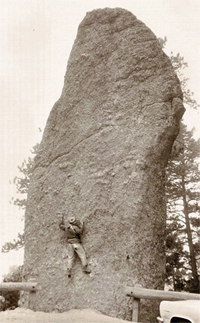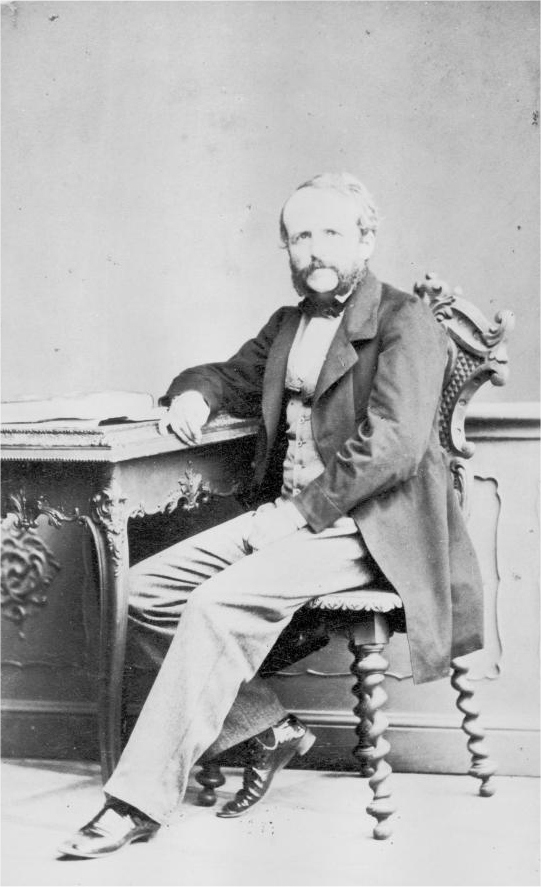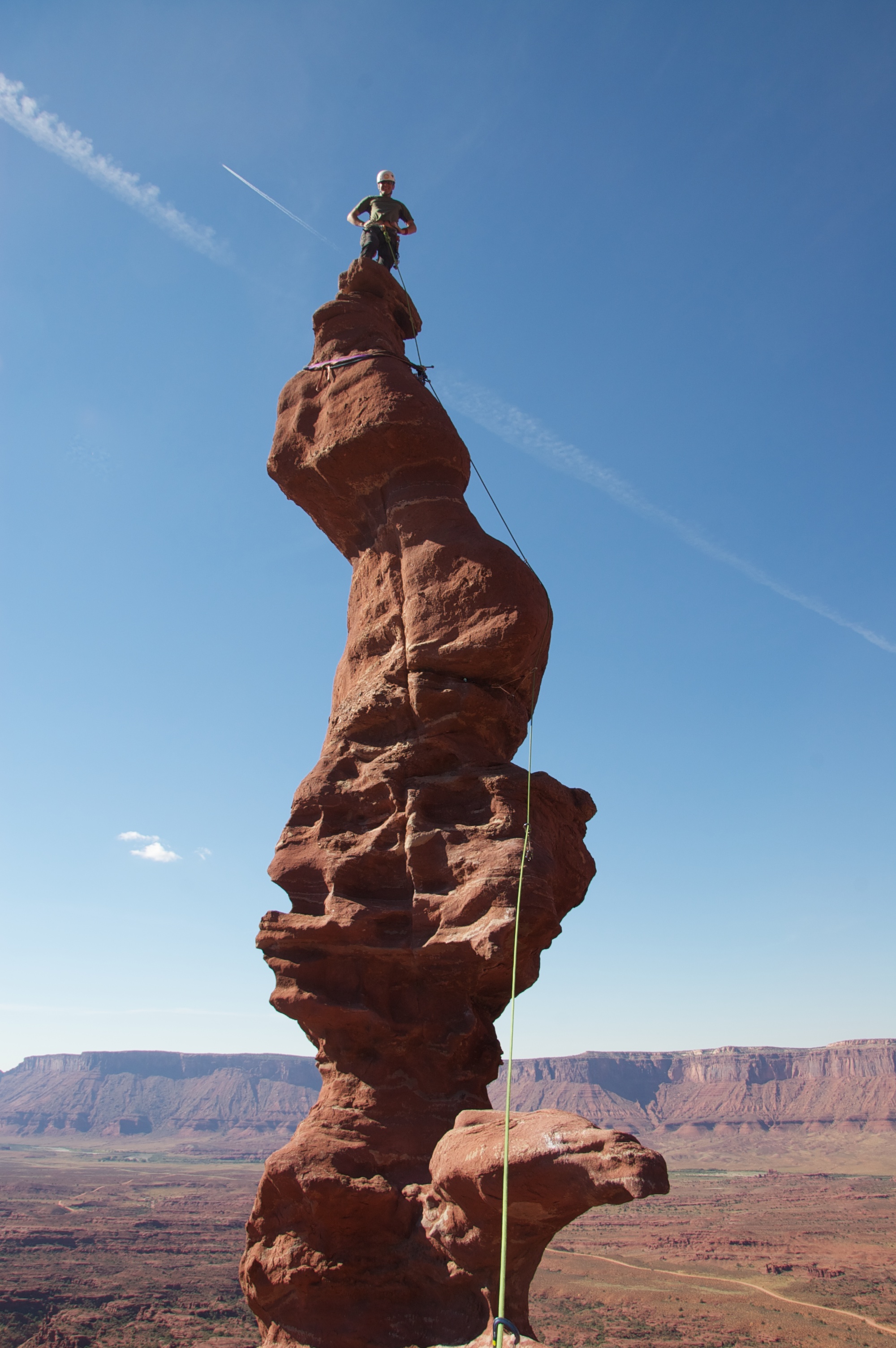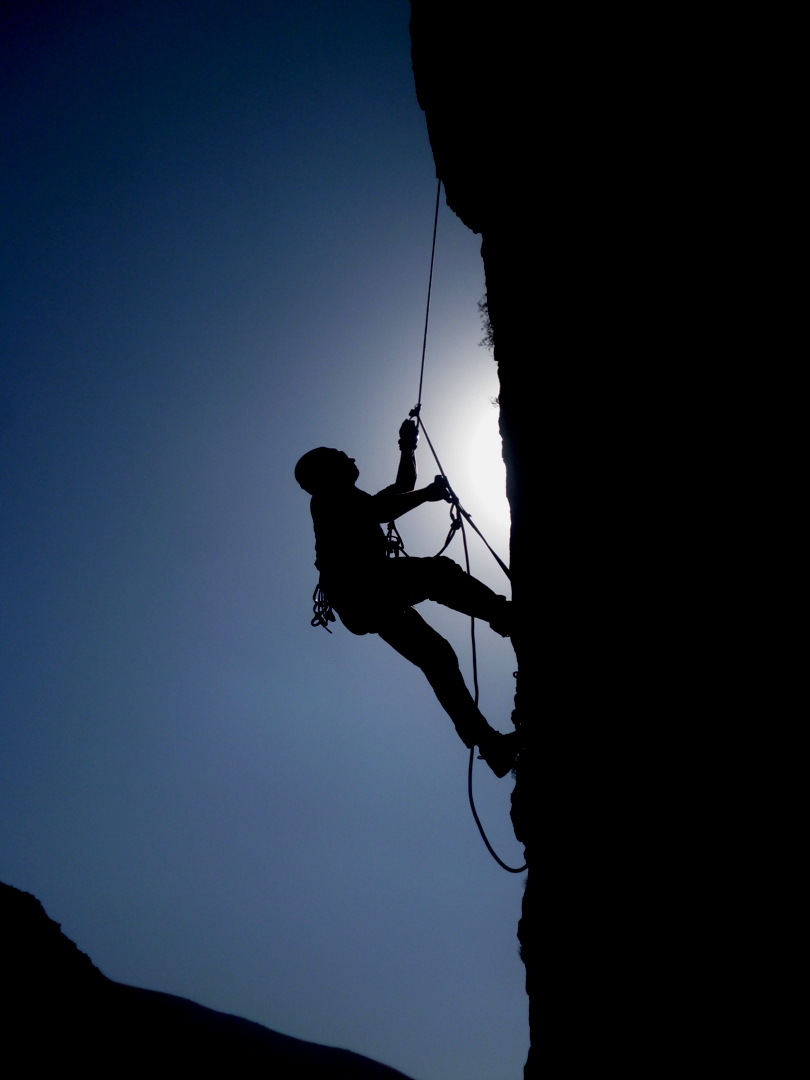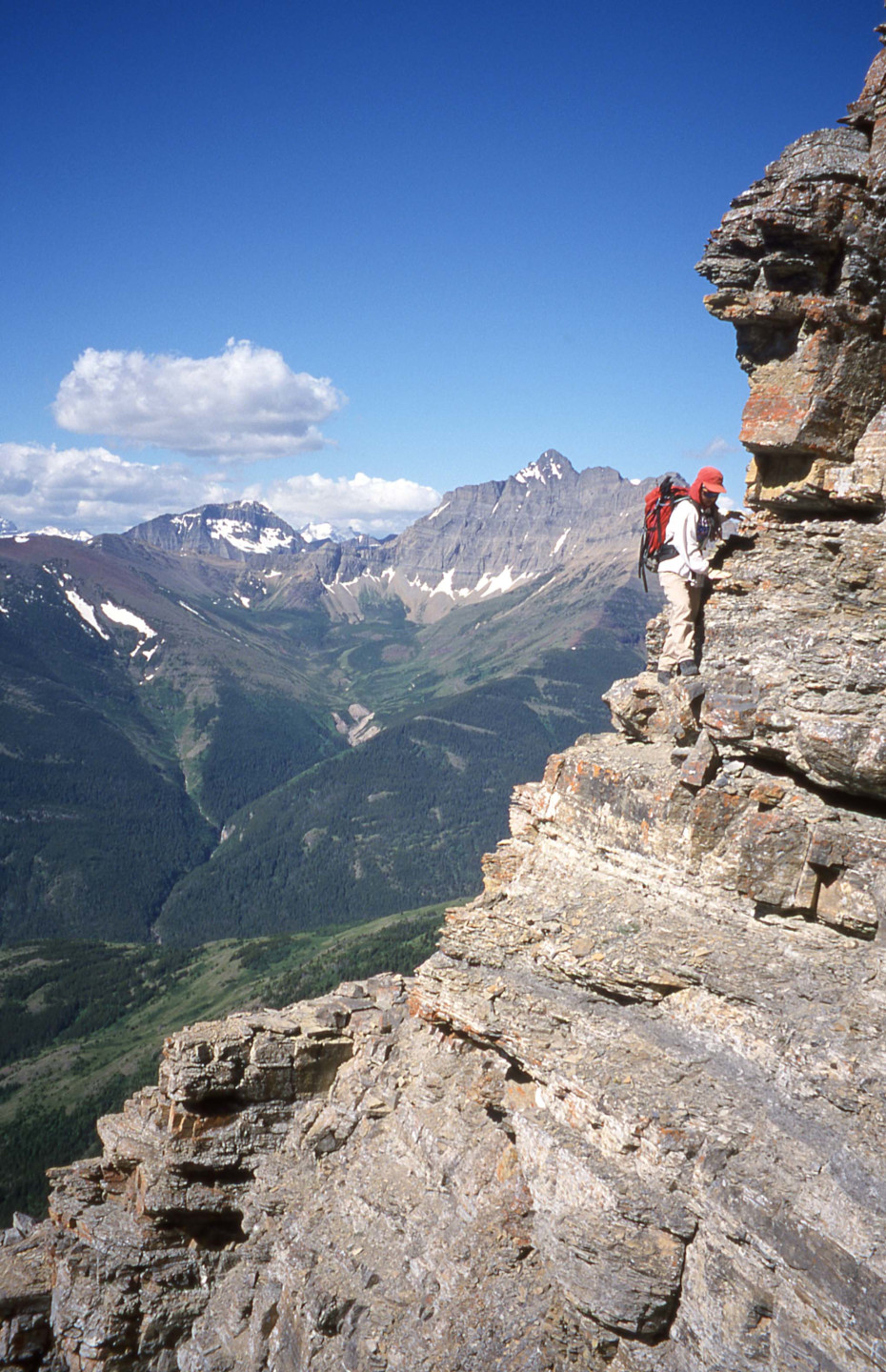|
Walter Parry Haskett Smith
Walter Parry Haskett Smith (28 August 1859 – 11 March 1946) was an English barrister-at-law, athlete, traveller and pioneer rock climber. Background Born in Bognor Regis, England, he was the second son of the landowner Haskett Smith (1813–1895) of Goudhurst and his wife Anne nee Davies; the cricketer Algernon Haskett-Smith was his elder brother. He was educated at Eton College where he excelled at athletics. He matriculated at Trinity College, Oxford in 1879, graduating B.A. in 1882 and M.A. in 1887. At Oxford he attained a long jump unofficial world record of . Haskett Smith was called to the bar at Lincoln's Inn in 1885. There is no indication that he worked as a barrister. Climber On a university reading party at Aber, Wales in 1880, Haskett Smith became interested in exploring local cliffs, and in 1881 he journeyed to the Lake District and took a room at the inn at Wasdale Head, staying there for two months, meeting Frederick Herman Bowring, an enthusiastic fell-scr ... [...More Info...] [...Related Items...] OR: [Wikipedia] [Google] [Baidu] |
Bognor Regis
Bognor Regis (), sometimes simply known as Bognor (), is a town and seaside resort in West Sussex on the south coast of England, south-west of London, west of Brighton, south-east of Chichester and east of Portsmouth. Other nearby towns include Littlehampton east-north-east and Selsey to the south-west. The nearby villages of Felpham, and Aldwick are now suburbs of Bognor Regis, along with those of North and South Bersted. The population of the Bognor Regis built-up area, including Felpham and Aldwick, was 63,855 at the 2011 census. A seaside resort was developed by Sir Richard Hotham in the late 18th century on what was a sand and gravel, undeveloped coastline. It has been claimed that Hotham and his new resort are portrayed in Jane Austen's unfinished novel ''Sanditon''. The resort grew slowly in the first half of the 19th century but grew rapidly following the coming of the railway in 1864. In 1929 the area was chosen by advisors to King George V which led to its r ... [...More Info...] [...Related Items...] OR: [Wikipedia] [Google] [Baidu] |
Frederick Herman Bowring
Frederick may refer to: People * Frederick (given name), the name Nobility Anhalt-Harzgerode *Frederick, Prince of Anhalt-Harzgerode (1613–1670) Austria * Frederick I, Duke of Austria (Babenberg), Duke of Austria from 1195 to 1198 * Frederick II, Duke of Austria (1219–1246), last Duke of Austria from the Babenberg dynasty * Frederick the Fair (Frederick I of Austria (Habsburg), 1286–1330), Duke of Austria and King of the Romans Baden * Frederick I, Grand Duke of Baden (1826–1907), Grand Duke of Baden * Frederick II, Grand Duke of Baden (1857–1928), Grand Duke of Baden Bohemia * Frederick, Duke of Bohemia (died 1189), Duke of Olomouc and Bohemia Britain * Frederick, Prince of Wales (1707–1751), eldest son of King George II of Great Britain Brandenburg/Prussia * Frederick I, Elector of Brandenburg (1371–1440), also known as Frederick VI, Burgrave of Nuremberg * Frederick II, Elector of Brandenburg (1413–1470), Margrave of Brandenburg * Frederick William, E ... [...More Info...] [...Related Items...] OR: [Wikipedia] [Google] [Baidu] |
1946 Deaths
Events January * January 6 - The first general election ever in Vietnam is held. * January 7 – The Allies recognize the Austrian republic with its 1937 borders, and divide the country into four occupation zones. * January 10 ** The first meeting of the United Nations is held, at Methodist Central Hall Westminster in London. ** ''Project Diana'' bounces radar waves off the Moon, measuring the exact distance between the Earth and the Moon, and proves that communication is possible between Earth and outer space, effectively opening the Space Age. * January 11 - Enver Hoxha declares the People's Republic of Albania, with himself as prime minister. * January 16 – Charles de Gaulle resigns as head of the French provisional government. * January 17 - The United Nations Security Council holds its first session, at Church House, Westminster in London. * January 19 ** The Bell XS-1 is test flown for the first time (unpowered), with Bell's chief test pilot Jack Woolams at t ... [...More Info...] [...Related Items...] OR: [Wikipedia] [Google] [Baidu] |
1859 Births
Events January–March * January 21 – José Mariano Salas (1797–1867) becomes Conservative interim President of Mexico. * January 24 ( O. S.) – Wallachia and Moldavia are united under Alexandru Ioan Cuza (Romania since 1866, final unification takes place on December 1, 1918; Transylvania and other regions are still missing at that time). * January 28 – The city of Olympia is incorporated in the Washington Territory of the United States of America. * February 2 – Miguel Miramón (1832–1867) becomes Conservative interim President of Mexico. * February 4 – German scholar Constantin von Tischendorf rediscovers the ''Codex Sinaiticus'', a 4th-century uncial manuscript of the Greek Bible, in Saint Catherine's Monastery on the foot of Mount Sinai, in the Khedivate of Egypt. * February 14 – Oregon is admitted as the 33rd U.S. state. * February 12 – The Mekteb-i Mülkiye School is founded in the Ottoman Empire. * February 17 – French naval forces under Char ... [...More Info...] [...Related Items...] OR: [Wikipedia] [Google] [Baidu] |
Fell & Rock Climbing Club
The Fell & Rock Climbing Club of the English Lake District (in everyday usage the Fell and Rock Club or FRCC) is the senior climbing club covering the English Lake District. It was founded in 1906–1907 and, amongst its other activities, publishes the rock climbing guides to the area. It owns many of the early climbing photographs (e.g. Hankinson, 1975) taken by George & Ashley Abraham, who were founding members. Photograph from Owen Glynne Jones's book, ''Rock-climbing in the English Lake District'' Early history The club had been originally proposed by John Wilson Robinson about 1887, approximately when rock climbing began as a sport in England. Robinson, owner of a farm and, later, an estate agent's business in Keswick, climbed with Walter Parry Haskett Smith, generally acknowledged as the father of rock climbing in Great Britain, and it was Robinson – in 1885 - who introduced the use of the alpine rope in the Lake District. Ashley Abraham was elected the first presi ... [...More Info...] [...Related Items...] OR: [Wikipedia] [Google] [Baidu] |
Bouldering
Bouldering is a form of free climbing that is performed on small rock formations or artificial rock walls without the use of ropes or harnesses. While bouldering can be done without any equipment, most climbers use climbing shoes to help secure footholds, chalk to keep their hands dry and to provide a firmer grip, and bouldering mats to prevent injuries from falls. Unlike free solo climbing, which is also performed without ropes, bouldering problems (the sequence of moves that a climber performs to complete the climb) are usually less than tall. Traverses, which are a form of boulder problem, require the climber to climb horizontally from one end to another. Artificial climbing walls allow boulderers to climb indoors in areas without natural boulders. In addition, bouldering competitions take place in both indoor and outdoor settings. The sport was originally a method of training for roped climbs and mountaineering, so climbers could practice specific moves at a safe dist ... [...More Info...] [...Related Items...] OR: [Wikipedia] [Google] [Baidu] |
Avocation
An avocation is an activity that someone engages in as a hobby outside their main occupation. There are many examples of people whose professions were the ways that they made their livings, but for whom their activities outside their workplaces were their true passions in life. Occasionally, as with Lord Baden-Powell and others, people who pursue an avocation are more remembered by history for their avocation than for their professional career. Many times a person's regular vocation may lead to an avocation. Many forms of humanitarian campaigning, such as work for organizations like Amnesty International and Greenpeace, may be done by people involved in the law or human rights issues as part of their work. Many people involved with youth work pursue this as an avocation. Avocation in literature People whose avocations were not their vocations A B C D E F G H I J K L M N O P Q R S T U V ... [...More Info...] [...Related Items...] OR: [Wikipedia] [Google] [Baidu] |
Etymologies
Etymology ()The New Oxford Dictionary of English (1998) – p. 633 "Etymology /ˌɛtɪˈmɒlədʒi/ the study of the class in words and the way their meanings have changed throughout time". is the study of the history of the form of words and, by extension, the origin and evolution of their semantic meaning across time. It is a subfield of historical linguistics, and draws upon comparative semantics, morphology, semiotics, and phonetics. For languages with a long written history, etymologists make use of texts, and texts about the language, to gather knowledge about how words were used during earlier periods, how they developed in meaning and form, or when and how they entered the language. Etymologists also apply the methods of comparative linguistics to reconstruct information about forms that are too old for any direct information to be available. By analyzing related languages with a technique known as the comparative method, linguists can make inferences about their sha ... [...More Info...] [...Related Items...] OR: [Wikipedia] [Google] [Baidu] |
Owen Glynne Jones
150px, Portrait and signature of Owen Glynne Jones from his book ''Rock-climbing in the English Lake District'' Owen Glynne Jones (2 November 1867 – 28 August 1899) was a Welsh rock-climber and mountaineer. He established many new routes in the Lake District and elsewhere, often climbing with George and Ashley Abraham, brothers who photographed the climbs for posterity. Rock climbing Jones was born in London, England, the son of a Welsh carpenter-builder, and took a first-class Honours degree in experimental physics. Not able to obtain a professorship, he became physics master at the City of London School. He began climbing in 1888, and was among those pioneers who first perceived rock climbing as a sport. As a climber, he had an athletic climbing style, and is considered by many to be one of the first "rock gymnasts". Although Jones said little in his writings about his training tactics – other than working with dumbbells – there are several stories regarding his gymna ... [...More Info...] [...Related Items...] OR: [Wikipedia] [Google] [Baidu] |
Exposure (heights)
Exposure is a climbing and hiking term. Sections of a hiking path or climbing route are described as "exposed" if there is a high risk of injury in the event of a fall because of the steepness of the terrain. If such routes are negotiated without any protection, a false step can result in a serious fall. The negotiation of such routes can cause fear of falling because of the potential danger. Definitions What constitutes exposure on a path is fairly obvious, however, an "exposed" location or section of a climbing route is not uniformly or clearly defined in the literature. There are no threshold values, for example, based on the gradient of the terrain, the height of rock faces or the character of a ridge or arête. Authors tend to use their own definition of the terms "exposure" or "exposed" when describing routes, for example: Exposure * "''The distance from the climber to where the climber would likely stop in the event of an unprotected fall.''" * "''Being very far above ... [...More Info...] [...Related Items...] OR: [Wikipedia] [Google] [Baidu] |
Rock Climbing
Rock climbing is a sport in which participants climb up, across, or down natural rock formations. The goal is to reach the summit of a formation or the endpoint of a usually pre-defined route without falling. Rock climbing is a physically and mentally demanding sport, one that often tests a climber's strength, endurance, agility and balance along with mental control. Knowledge of proper climbing techniques and the use of specialized climbing equipment is crucial for the safe completion of routes. Because of the wide range and variety of rock formations around the world, rock climbing has been separated into several different styles and sub-disciplines, such as scrambling, bouldering, sport climbing, and trad (traditional) climbing another activity involving the scaling of hills and similar formations, differentiated by the rock climber's sustained use of hands to support their body weight as well as to provide balance. Rock climbing competitions have the objectives of either ... [...More Info...] [...Related Items...] OR: [Wikipedia] [Google] [Baidu] |
Scrambling
Scrambling is a mountaineering term for ascending steep terrain using one's hands to assist in holds and balance.''New Oxford American Dictionary''. It is also used to describe terrain that falls between hiking and rock climbing (as a “scramble”). Sure-footedness and a head for heights are essential. Canyoning and stream climbing are other types of scrambling. Overview Scrambling is ascending or traversing a grade without technical apparatus. Unroped ascent in exposed situations is potentially one of the most dangerous of mountaineering activities. As soon as an ascent involves a rope, going up or down, it is no longer a scramble. Alpine scrambling Alpine scrambling is scrambling in high mountains and may not follow a defined or waymarked path. The Seattle Mountaineers climbing organization defines alpine scrambling as follows: Alpine Scrambles are off-trail trips, often on snow or rock, with a 'non-technical' summit as a destination. A non-technical summit is one ... [...More Info...] [...Related Items...] OR: [Wikipedia] [Google] [Baidu] |




